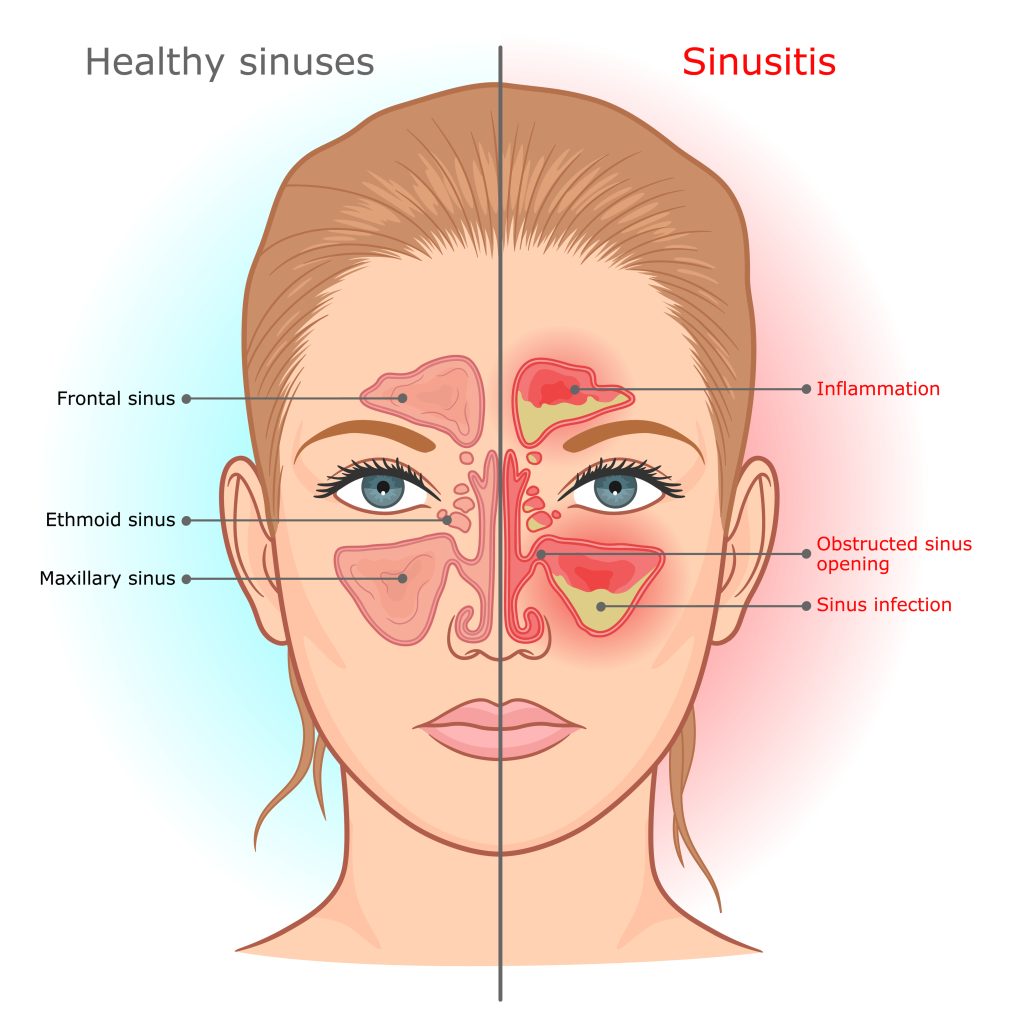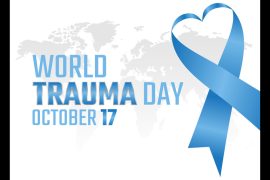That constant battle with a stuffy nose, throbbing headache, and facial pain resulting from a sinus infection is exhausting! Sinus infections, or sinusitis, can turn even the brightest day into a foggy nightmare. But fear not! In this article, we will delve into sinus infections and uncover the warning signs and symptoms that should raise your alarm bells.
What is a Sinus Infection?
A sinus infection occurs when the sinuses, the air-filled cavities in the skull, become inflamed and infected. Multiple factors, including allergies, viral or bacterial infections, and structural abnormalities in the nasal passages, can cause this infection. The symptoms may include facial pain and pressure, nasal congestion, thick nasal discharge, headache, fatigue, and cough.
When Should You Seek Medical Help for Sinus Infection?
While mild sinus infections can often be managed at home with over-the-counter remedies, there are certain situations where it is vital to consult a doctor. If symptoms persist for multiple days, worsen after initial improvement, or are accompanied by high fever, severe headache, neck stiffness, or vision changes, it is crucial to seek medical attention as soon as possible. A doctor’s evaluation can help determine the severity, type, and appropriate treatment for the sinus infection.
Warning Signs and Symptoms of Complications
In some cases, a severe sinus infection might lead to complications that require immediate medical attention. These complications may include spreading the infection to nearby structures, such as the eyes or brain. Warning signs and symptoms of complications include severe headache, worsening facial pain, swelling around the eyes, double vision, confusion, and high fever.
What to Expect During a Doctor’s Visit
During a doctor’s visit for a sinus infection, the healthcare provider will typically start by conducting a physical examination. This examination may involve checking for tenderness over the sinuses and examining the nasal passages. In some cases, additional diagnostic tests and procedures, such as imaging studies or nasal endoscopy, may be recommended to confirm the diagnosis and identify the underlying cause of the infection. After confirming the diagnosis, the doctor will discuss the appropriate treatment options.
Coping with Sinus Infection
In addition to medical treatment, multiple self-care and preventative measures can help manage sinus infections and reduce the risk of future episodes. To manage symptoms at home, individuals can use saline nasal rinses or sprays to keep the nasal passages moist, apply warm compresses to the face to relieve pain and pressure, and stay hydrated. Strategies for preventing future sinus infections include avoiding known allergens, practising good hand hygiene, and quitting smoking.
While self-care measures can be effective in many cases, knowing when to seek medical attention is crucial. If symptoms persist or recur despite home remedies, it is advisable to consult a doctor. Ongoing symptoms may indicate the need for further evaluation or a change in treatment approach. Recurrent sinus infections may require a more thorough investigation to identify underlying factors contributing to the repeated infections.
Conclusion
Sinus infections can significantly impact one’s quality of life, but recognising the warning signs and symptoms can help prompt timely medical attention. Seeking a doctor’s evaluation is crucial when symptoms persist, worsen, or are accompanied by signs of complications. By understanding when to see a doctor and how to manage sinus infections, individuals can effectively address the condition and minimise its impact on their well-being. Remember, early intervention and appropriate treatment can lead to a faster recovery and a healthier future.
FAQs
Q: What are the symptoms of a sinus infection?
A: Common symptoms of a sinus infection include facial pain and pressure, nasal congestion, thick nasal discharge (often yellow or green), headache, fatigue, and cough. Some people may also experience a reduced sense of smell or taste.
Q: How long should I wait before seeing a doctor for a sinus infection?
A: If your symptoms persist for more than 10 days, worsen after initial improvement, or are accompanied by high fever, severe headache, neck stiffness, or changes in vision, it is recommended to see a doctor promptly. These signs may indicate a more severe infection or potential complications.
Q: How can I manage a sinus infection at home?
A: While medical treatment is often necessary for sinus infections, there are some self-care measures you can try at home to alleviate symptoms. These include using saline nasal rinses or sprays to keep the nasal passages moist, applying warm compresses to the face to relieve pain and pressure, staying hydrated, and getting plenty of rest.
References:
https://acaai.org/allergies/allergic-conditions/sinus-infection/
https://my.clevelandclinic.org/health/diseases/17701-sinusitis
https://www.healthline.com/health/cold-flu/sinus-infection-symptoms
https://www.mayoclinic.org/diseases-conditions/chronic-sinusitis/symptoms-causes/syc-20351661





Comments are closed.